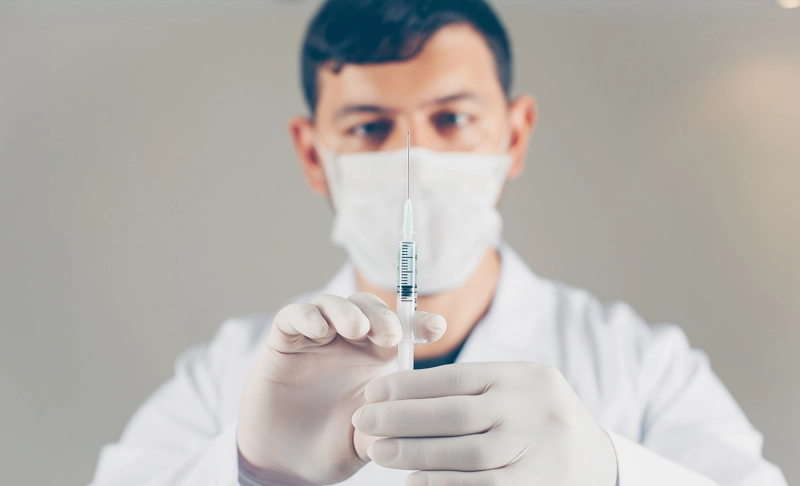By: Varun Kumar
November 6 2020

Vaccines cannot genetically change or alter human DNA. No studies or evidence prove that mRNA vaccination could cause genetic defects.
Vaccines cannot genetically change or alter human DNA. No studies or evidence prove that mRNA vaccination could cause genetic defects.An RNA vaccine or vaccine is a new type of vaccine for providing acquired immunity through an RNA containing vector, such as lipid nanoparticles. RNA vaccines are intended to activate T-cells by the presence of clearly defined antigens in the cytosol that can enable the presentation of both endogenous and exogenous antigens. The mRNA vaccine field is developing rapidly; a large body of preclinical data has been accumulated over several years, and multiple human clinical trials have been initiated. The vaccines have entered clinical studies against infectious diseases. RNA vaccines offer numerous advantages over DNA vaccines through low-cost production, administration, and safety and are promising in clinical trials involving humans. Moreover, RNA vaccines are also thought to have the potential to be used against cancer in addition to infectious diseases, and several RNA vaccines are under development to combat the COVID-19 pandemic. There are no RNA vaccines approved for human use and no such evidence that the mRNA vaccination would cause genetic defects conclusively. Mark Lynas, visiting professor of the Alliance for Science group at Cornell University, United States, explained to Reuters that no vaccine could genetically modify human DNA. He said such myths are often intentionally propagated by anti-vaccination activists to generate confusion and mistrust.